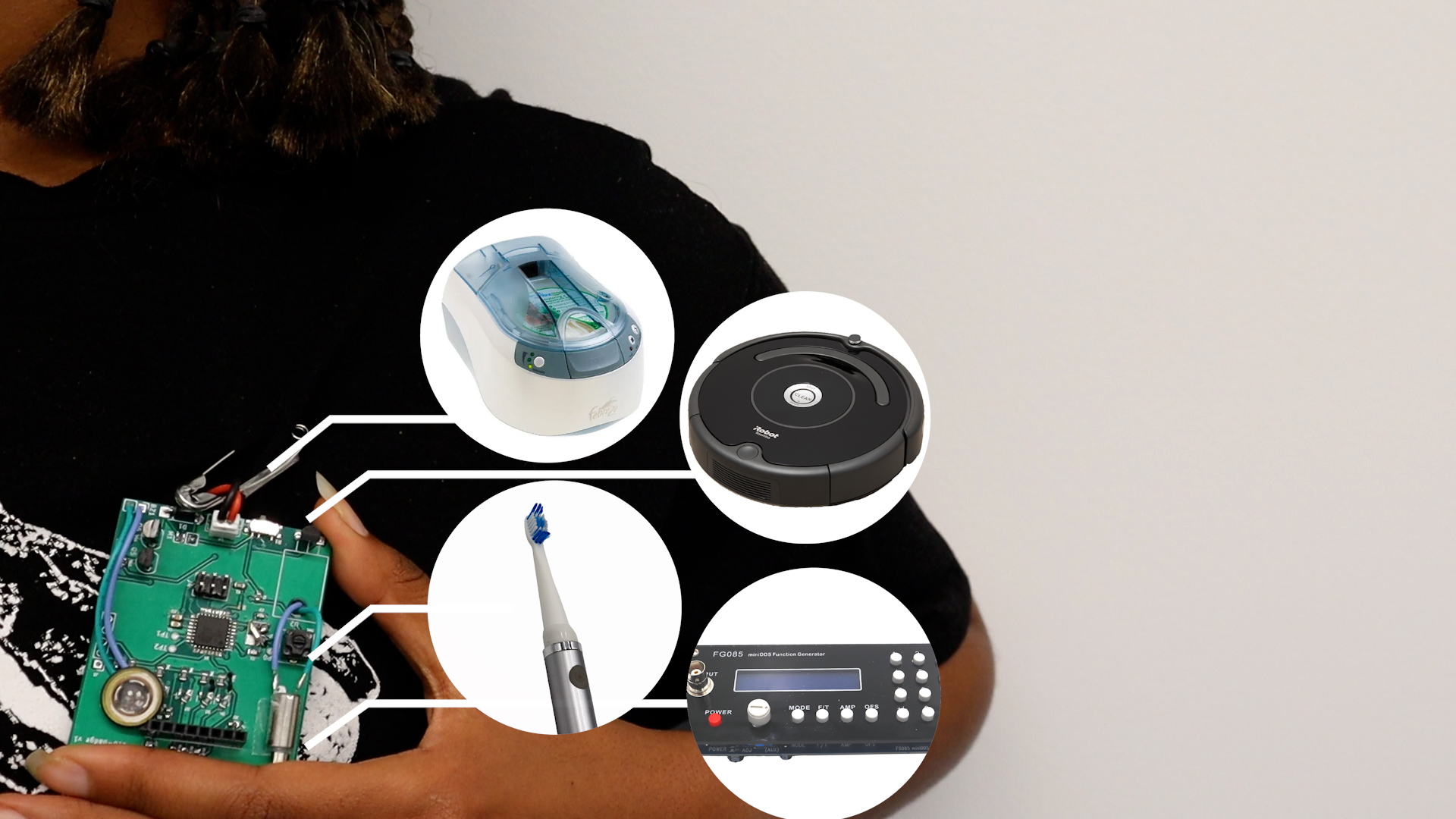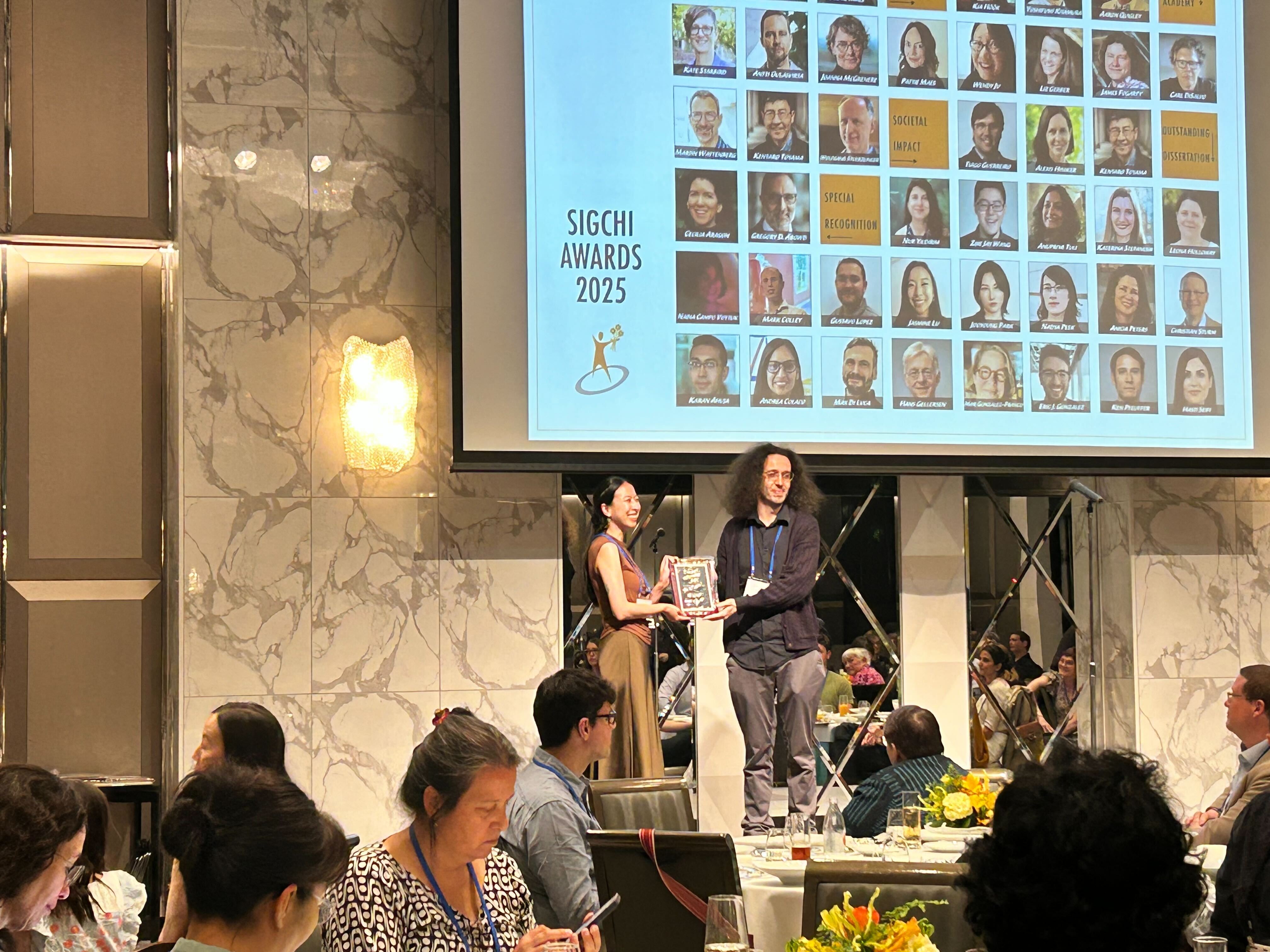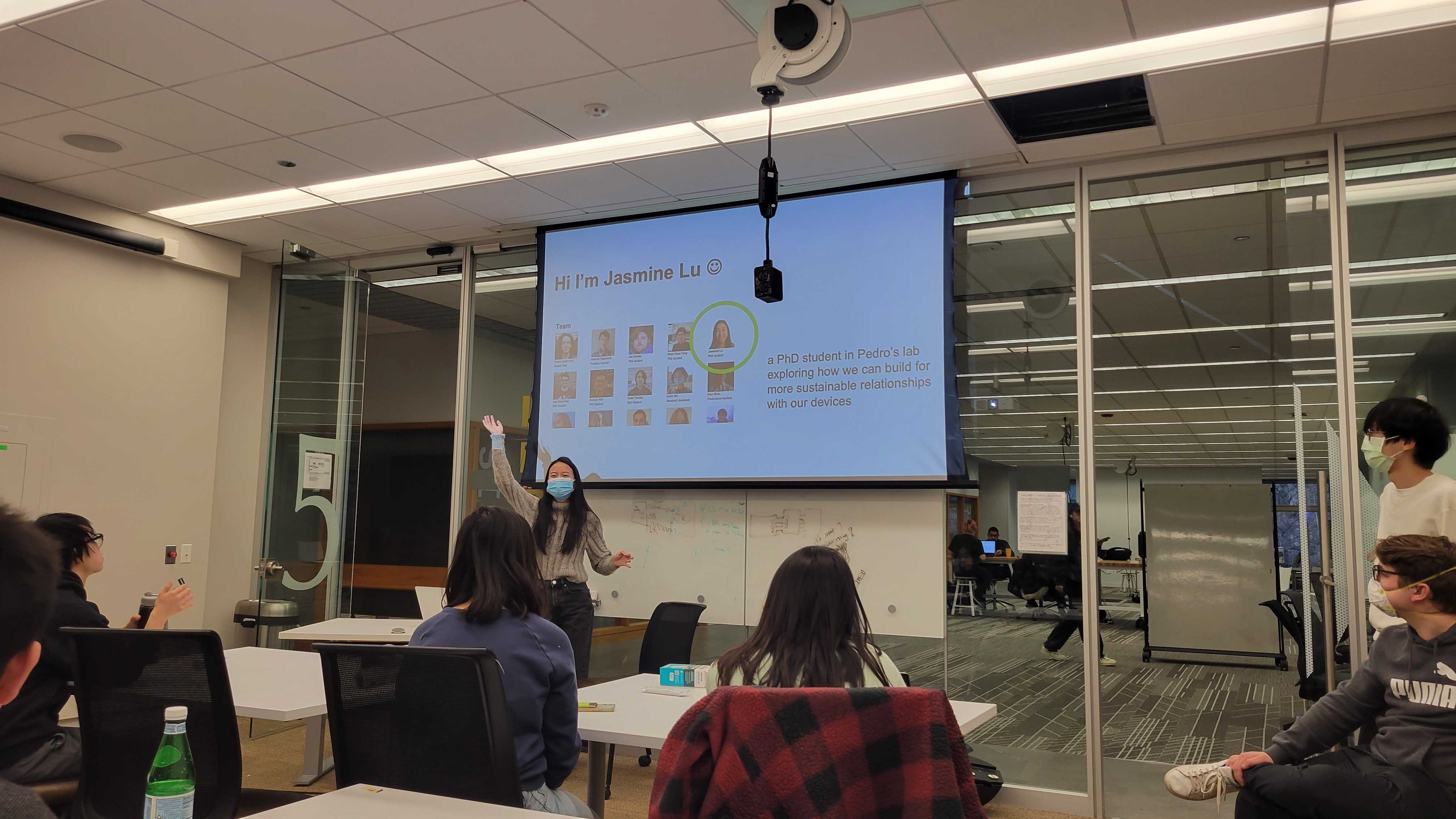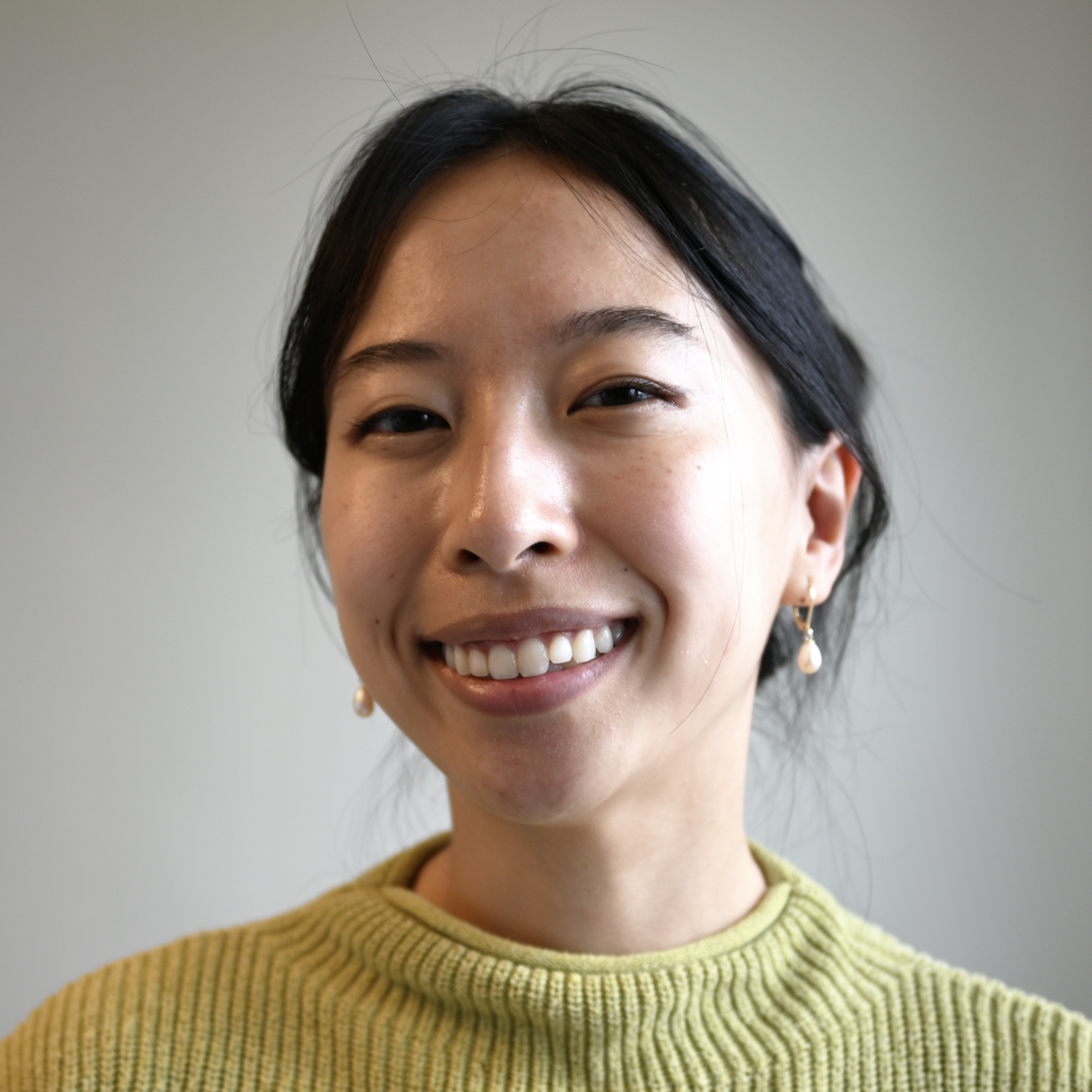JASMINE LU 🌱
is a Human Computer Interaction researcher and PhD student supported by the NSF Graduate Research Fellowship and two UChicago Institute for Climate and Sustainable Growth PhD Grants. She is a part of the Human Computer Integration Lab and is advised by Pedro Lopes. Through her work, she explores how we can use computational approaches towards reducing, reusing, and recycling electronic waste. Her research interests include e-waste, critical making, sustainable computing, and living media interfaces.
Jasmine’s most recent work, ProtoPCB: Reclaiming Printed Circuit Board E-waste as Prototyping Material, will be presented at the CHI2025 Conference. In it, she presents a computational approach to analyzing printed circuit boards and identifying how they can be reused for prototyping new circuits. This work extends the utility of PCBs rather than discards them as e-waste, enabling (1) a new approach to prototyping with electronics beyond the limitations of breadboards and (2) a new approach to reducing e-waste during electronics prototyping.
She received an ACM SIGCHI Special Recognition for her research on sustainable computing and role in building community. Her work has also been covered by the The New Scientist, Forbes, Gizmodo, UChicago News, Nerdist, Communications of the ACM, and more.
Jasmine will be applying to tenure-track faculty positions in Fall 2025.
CV | Email | Twitter | Bluesky
Read more in ‘About Me’Selected Publications
Full Stack Recycling Approaches for Computing Devices.
Jasmine Lu, Pedro Lopes. In Proc. Conference on Communications of the ACM (CACM) ’25.[ paper ]
Currently, electronics recycling is primarily solved from a materials recycling approach. This is accomplished by taking the electronic device, melting it down, and extracting raw materials from it. While this method is useful for tackling recycling at large scales, it is incredibly inefficient. This recycling approach ignores the inherent functional modularity of electronic devices - that they are built on a stack. We propose an alternative vision of recycling - full stack recycling. Read more in Full Stack Recycling.
ProtoPCB: Reclaiming Printed Circuit Board E-waste as Prototyping Material.
Jasmine Lu, Sai Rishitha Boddu, Pedro Lopes. In Proc. Conference on Human Factors in Computing Systems (CHI) ’25.[ paper ] [ video ] [ talk ] [ code ]
PCBs often easily become e-waste because they are designed for a specific circuit. To extend the utility of PCBs, we introduce a computational approach to enable reusing PCBs as prototyping material to implement new circuits. Our tool takes a user’s desired circuit schematic and analyzes its components and connections to find methods of creating the user’s circuit on discarded PCBs (e.g., e-waste, old prototypes). We believe our tool offers: (1) a new approach to prototyping with electronics beyond the limitations of breadboards and (2) a new approach to reducing e-waste during electronics prototyping. Read more in ProtoPCB.
Unmaking Electronic Waste.
Jasmine Lu, Pedro Lopes. In ACM Transactions on Computer-Human Interaction (TOCHI). Volume 31, Issue 6.[ paper ] [ talk ]
HCI primarily focuses on designing and understanding device interactions during one segment of their lifecycles—while users use them. Leaving significant space overlooked: when devices are no longer “useful” to the user, such as after breakdown or obsolescence. We argue that HCI can learn from experts who upcycle e-waste and give it second lives, exploring their practices through the lens of unmaking both when devices are physically unmade and when the perception of e-waste is unmade once waste becomes, once again, useful. Read more in Unmaking Electronic Waste.

ecoEDA: Recycling E-Waste During Electronics Design.
Jasmine Lu, Beza Desta, K D Wu, Romain Nith, Joyce Passananti, Pedro Lopes. In Proc. User Interface Software and Technology (UIST) ’23.🏅Honorable Mention
[ paper ] [ video ] [ talk ] [ code ]
E-Waste is the fastest growing consumer waste-stream in the world. Inside any device that might typically become e-waste, one can find dozens to hundreds of reusable components. Despite the abundance of components in e-waste, existing electronic design tools assume users will buy all components anew. To tackle this, we created a tool called ecoEDA that facilitates component reuse during the design process. Read more in ecoEDA: Recycling E-Waste During Electronics Design.
Integrating Living Organisms in Devices to Implement Care-based Interactions.
Jasmine Lu, Pedro Lopes. In Proc. User Interface Software and Technology (UIST) ’22.🏅Fast Company Experimental Design Finalist
⚙️️ Open Source Hardware Association Certification
[ paper ] [ video ] [ talk ] [ design files ]
We explore how embedding a living organism (in this case a slime mold, Physarum Polycephalum) as a functional component of a device, changes the user-device relationship. In our design, the user needs to care for the living organism (through providing food and water) in order for the device to work. When healthy, the organism participates in the device’s functionality by acting as a physical wire that enables power to the watch’s heart rate sensor. As such, caring for the device is intrinsic to its interaction design. Read more in Integrating Living Organisms in Devices to Implement Care-based Interactions.
Recent News
March 2025Had so much fun reflecting on my PhD journey for this UChicago CS News feature. Read more about my work here.
February 2025
So honored to be get an ACM SIGCHI Special Recognition for my sustainable computing research and role in building community. Read more about me and other awardees here.
October 2024
Extremely grateful to be selected as a PhD grant winner from the newly established Climate and Energy Institute at UChicago. Read more about my project here.
Read more in ‘News’
Selected Press
NPR Points North Podcast. My Little Slime. August 2025.
UChicago CS News. Jasmine Lu on Sustainable Computing: Rethinking E-Waste and Innovation. March 2025.
ACM SIGCHI Medium Blog. Announcing the 2025 ACM SIGCHI Awards. February 2025.
UChicago Climate and Energy Institute News. Grant Winners Display Cross-Disciplinary Collaboration, New Ecosystem. October 2024.
Hackaday. ecoEDA Integrates Your Junk Bin Into Your Designs. October 2023.
Read more in ‘Press’
Academic Outreach, Service, and Teaching








